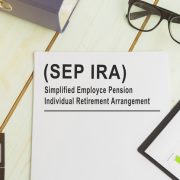Is a Self-Directed SEP IRA Good for Solopreneurs?
What retirement accounts are best for which people? That is tough to define. What we can do here at American IRA is tell you all about what an account can do, and who might qualify for that account. One such account, for example, is the Self-Directed SEP IRA, which is a powerful way for investors to put aside money for retirement. The SEP IRA has high contribution limits and plenty of flexibility for people with self-employment income.
But is it right for solopreneurs? We cannot make that decision for you. However, we can define the terms and help you better understand how the two might relate.
Defining the “Solopreneur”
A “solopreneur” is an amalgamation of the two words “solo” and “entrepreneur”—in essence, we are talking about individuals who might have a business, but no employees except themselves. This can be a highly advantageous position to be in because it means that the individual has lots of opportunities for creating retirement accounts that are specifically favorable for how they want to do things.
In the modern gig economy, a solopreneur’s journey is becoming increasingly common. People who are struggling to find work often create their own jobs by freelancing, contracting, and otherwise working on a basis of 1099s rather than W2s. And for these people, there are some retirement options that can offer a lot of benefits. One of those accounts is the Self-Directed SEP IRA.
Defining the Self-Directed SEP IRA
Now let us look at the Self-Directed SEP IRA and what it can do. This is a type of IRA that uses tax-deferred contributions (i.e., deductible contributions, provided that you met the rules), for putting money aside into a retirement account. This money can then grow tax-free until the age of required minimum distributions, at which point it will be necessary for the individual to begin taking money from the account and pay the taxes on it.
The SEP IRA stands for Simplified Employee Pension IRA. It is a low-cost way for business owners to start investing or creating a plan for a wider range of employees. Contributions are tax-deductible within this plan, which means that for a solopreneur using the SEP IRA, they will be able to shrink their tax bill in the short term due to deducting these investments from their total income.
This is in contrast to a Roth IRA, wherein a solopreneur (or any type of retirement investor, for that matter) would have to use after-tax money to fund the account if they wanted to make a contribution. Because a Roth IRA uses money that has already been taxed, there are no taxes paid on the back end upon reaching retirement age—the money has been able to grow tax-free.
As you will see on our dedicated Self-Directed SEP-IRA page, there are a lot of advantages to this type of plan. They are low-cost, with low operating costs, and can be used by anyone who is a sole proprietor, independent contractor, or self-employed, provided they meet all other requirements.
Why a Self-Directed SEP IRA?
Self-direction allows investors to use their IRA for more than just the typical stocks and funds. A Self-Directed IRA makes it easy for investors to instead turn their attention to other asset classes, such as private companies, precious metals, and real estate. For this reason, many investors add a Self-Directed account to their retirement plans, which in turn lets them put retirement money aside for a wider range of asset classes within their overall retirement plan. It also puts retirement investors in the driver’s seat.
Interested in learning more about Self-Directed IRAs? Contact American IRA, LLC at 866-7500-IRA (472) for a free consultation. Download our free guides or visit us online at www.AmericanIRA.com.









